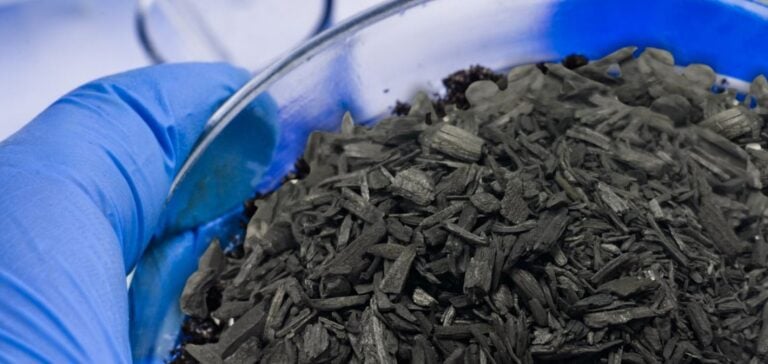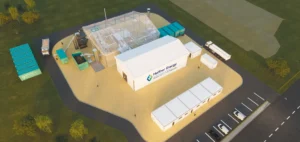The global energy transition drives countries to innovate in their approach to decarbonization. In Singapore, Bluefield Renewable Energy plays a crucial role with its biochar production initiative, in partnership with SembWaste and the Closed-Loop Partners Network. This project aligns with the national objective of becoming a “Zero Waste Nation” and achieving net-zero emissions by 2050.
Biochar, produced through advanced pyrolysis, converts waste into a stable, carbon-rich material that prevents carbon dioxide from returning to the atmosphere. This technology offers an innovative solution for waste management while generating high-quality carbon credits, meeting the growing demands of mechanisms like the European Union’s CBAM (Carbon Border Adjustment Mechanism).
A Tool for Circular Economy and Urban Biodiversity
Bluefield’s biochar initiative goes beyond waste management. Its applications are diverse:
– Sustainable Construction: When integrated into eco-concrete, biochar reduces the carbon footprint of buildings.
– Landscaping: Used as an amendment, it enhances soil health and strengthens biodiversity.
– Local Agriculture: Biochar promotes sustainable farming, supporting food security through urban farms.
These applications strengthen Singapore’s circular economy while aligning the country’s vision with its ambition to become a “Garden City.”
Major Economic and Ecological Value
Each ton of waste converted into biochar enables the generation of carbon credits that far surpass the quality of traditional credits. Bluefield estimates that the 700,000 tons of suitable waste available annually could produce over 330,000 carbon credits. This figure is equivalent to the carbon absorption of 16 million mature trees each year or offsetting emissions from 180,000 HDB (public housing) households.
Furthermore, these credits are highly valued for their transparency and measurable impact, attracting international buyers seeking reliable carbon solutions. This represents a significant economic opportunity for Singapore while reinforcing its climate leadership.
A Central Role in Singapore’s Carbon Neutrality
For Bluefield Renewable Energy, environmental innovation is a priority. Randy Toh, Vice President of the company, explains: “By transforming waste into valuable resources, we help position Singapore as a global reference in carbon sequestration.”
This initiative not only reduces local emissions but also allows Singapore to become a global player in the production of premium carbon credits, supporting both local decarbonization efforts and global climate commitments.
As Singapore works toward its 2050 goals, Bluefield demonstrates that intelligent resource management can transform climate challenges into economic and ecological opportunities.






















